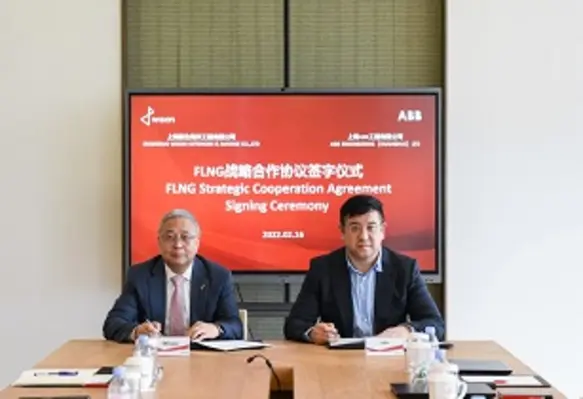ABB and Wison Offshore & Marine (WOM), a technology and solution provider focusing on clean energy, have signed a Memorandum of Understanding (MoU) to collaborate on the development and implementation of floating liquefied natural gas (FLNG) facilities worldwide
Valued at more than $US14,187mn in 2020, the global FLNG market is projected to reach a value of over US$104,281mn by 2031, growing at a CAGR of 20.1% . FLNG facilities make the production, liquefaction, and storage of natural gas possible at sea, from where it can be shipped directly to customers around the world. By optimising and standardising the FLNG unit design, ABB and WOM aim to significantly improve the production efficiency of LNG at sea.
WOM’s competence as a premier provider of turnkey engineering, procurement, construction, installation and commissioning (EPCIC) to the FLNG market will be coupled with ABB’s expertise in integrating electrical, control and safety systems.
Wei Huaqing, assistant president of WOM said, “The FLNG market continues to grow. We are pleased to be working with ABB and look forward to leveraging our complementary expertise to deliver more value for FLNG customers around the world. By combining our bespoke offerings, we believe we can increase productivity in greenfield developments and in doing so improve overall CAPEX efficiency.”
The agreement will also utilise ABB’s unique project methodology, Adaptive Execution, which offers customers complete visibility of their project, from start to finish, via a single, streamlined and centralised approach.
Cruise-Feng Li, head of ABB Energy Industries China, commented, “Adaptive Execution can help unlock significant project value for FLNG customers. By designing in a modular and standardised way, and testing everything in a virtual environment, we can tackle design challenges early on, boost performance and ensure reliability of the infrastructure. This enables all the parties involved in the project to achieve more in shorter timeframes, optimising the overall delivery schedule and saving on cost.”










